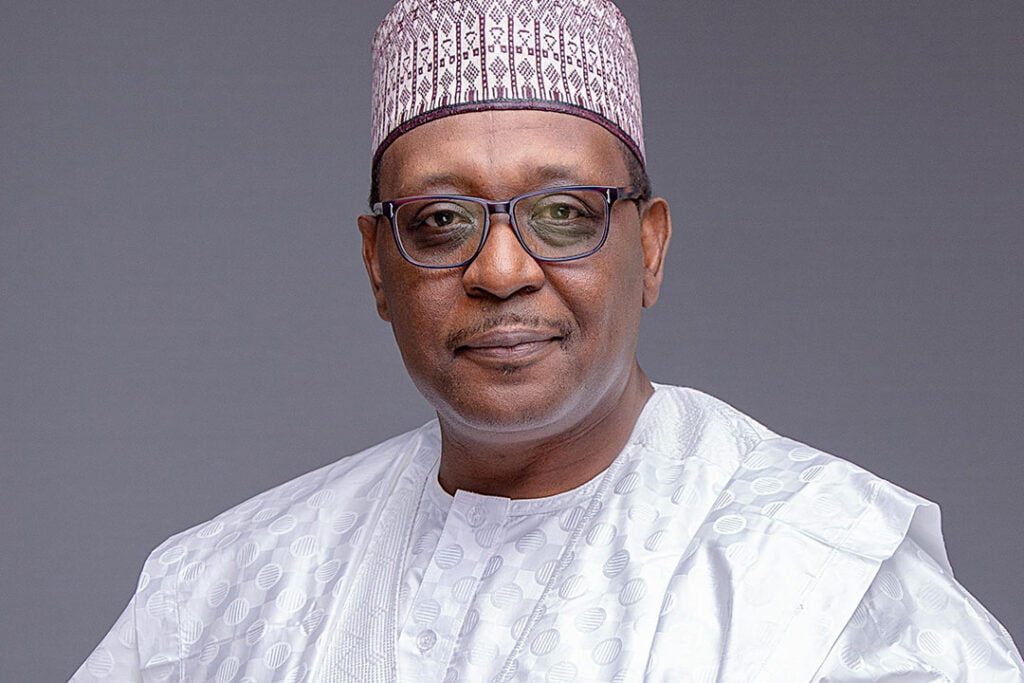Amidst the turbulent currents that define Nigeria’s health sector, the appointment of Prof. Muhammad Ali Pate as the Minister of Health and Social Welfare has ignited a flicker of both hope and skepticism. Can his distinguished antecedents and proven track record be the anchor that steadies the ship in the face of a rising tide of health crises?
Pate’s journey through the realm of healthcare, economics, and public health is akin to a rich mosaic woven from threads of expertise. These threads, spanning across disciplines from medicine to economics, represent an intersection of knowledge that’s crucial for addressing the multifaceted challenges that loom over a nation of over 200 million people.
Hailing from revered institutions like Ahmadu Bello University in Nigeria and Yale University in the United States, Pate’s academic foundation stands as a testament to his deep-seated understanding and global recognition.
His tenure as the Chief Executive Officer of the National Primary Health Care Development Agency (NPHCDA) from November 2008 to July 2011 was punctuated by remarkable feats. Instrumental in steering Nigeria toward the prestigious status of a polio-free nation, Pate orchestrated strategic partnerships that culminated in the successful eradication of polio within the country’s borders. His journey has been one of unwavering commitment to driving transformative change.
Now, assuming the mantle of Minister of Health and Social Welfare, Pate steps into a cauldron of challenges embedded within a healthcare landscape fraught with complexities. The struggling healthcare infrastructure, grappling with issues of accessibility, affordability, and quality, along with the incessant strikes by health workers, calls for much-needed reform. The lingering specter of medical tourism looms, casting doubts on the adequacy of local healthcare services.
Pate’s unwavering commitment to data-driven decisions and evidence-based policies offers a beacon of hope in steering Nigeria’s health system towards evidence-backed solutions. His approach, firmly anchored in a dedication to health equity and social welfare, places emphasis on reaching out to marginalized populations and bolstering the often-ignored primary healthcare services.
At 54 years of age, Pate’s journey has been characterized by a trajectory of innovation and unyielding dedication to the improvement of healthcare systems. Graduating from Ahmadu Bello University Medical School in Zaria, he embarked on a path that eventually led him to British Medical Research Council Laboratories in Gambia.
Pate’s extensive qualifications include medical degrees in Internal Medicine and Infectious Diseases, complemented by an MBA from Duke University. His academic pursuits also encompass studies at University College London and a Master’s in Health System Management from the London School of Hygiene & Tropical Medicine in the UK.

During his tenure as Nigeria’s Minister of State for Health, he spearheaded initiatives aimed at rejuvenating routine vaccinations and primary healthcare. He chaired a presidential task force dedicated to polio eradication and introduced novel vaccines to the country’s immunization program. Additionally, his “Saving One Million Lives” initiative, launched in 2012, encompassed diverse goals ranging from improving maternal and child health to HIV prevention and child nutrition enhancement.
Beyond his national role, Pate occupied the Julio Frenk Professor of Public Health Leadership position at the Harvard Chan School of Public Health. His footprint extended to boards and expert committees, spanning the public, private, and non-profit sectors.

From 2019 to 2022, he shouldered the responsibility of Global Director for Health, Nutrition, and Population at the World Bank, a role that included spearheading the institution’s $18 billion COVID-19 global health response fund. Pate’s influence reached even further as he represented the World Bank on influential boards such as Gavi, Global Fund, UNAIDS, and CEPI.
Notably, Pate’s trajectory involved facilitating the entry of the Bill and Melinda Gates Foundation into Nigeria. This pivotal role guided their direct engagement with State Primary Healthcare Agencies, showcasing his ability to galvanize partnerships for the greater good.
We very much looking forward to welcoming Dr Pate as we “continue to help countries scale up critical routine immunisation programmes, reach #zerodosechildren, expand access to new vaccines, transform primary health care systems, and fight outbreaks." pic.twitter.com/EGgf6vPs9E
— Gavi, the Vaccine Alliance (@gavi) February 13, 2023
In February of this year, Pate’s expertise garnered further recognition as he was slated to take on the role of Chief Executive Officer of the Vaccine Alliance (GAVI). The extensive selection process led to his appointment, set to commence in August. Yet, in a surprising twist, Pate chose to decline the CEO position, showcasing his unwavering dedication to serving Nigeria. This act, while foregoing a global leadership position, underscored his commitment to addressing the health challenges facing his home country.
Undoubtedly, Prof. Pate shoulders a significant responsibility. The state of Nigeria’s health indicators, despite some progress, remains daunting. Challenges encompass insufficient funding, inefficient resource utilization, healthcare workforce shortages, brain drain, frequent worker strikes, inadequate primary healthcare centers, limited health insurance coverage for vulnerable populations, medical tourism, malnutrition, high child and maternal mortality rates, rampant malaria, exclusion from malaria vaccine trials, and escalating non-communicable diseases (NCDs), the looming questions persist: Can Prof. Muhammad Ali Pate harness the power of his antecedents to navigate Nigeria’s health system through its turbulent waters? Can his visionary leadership surmount the bureaucratic hurdles and catalyze meaningful change?


